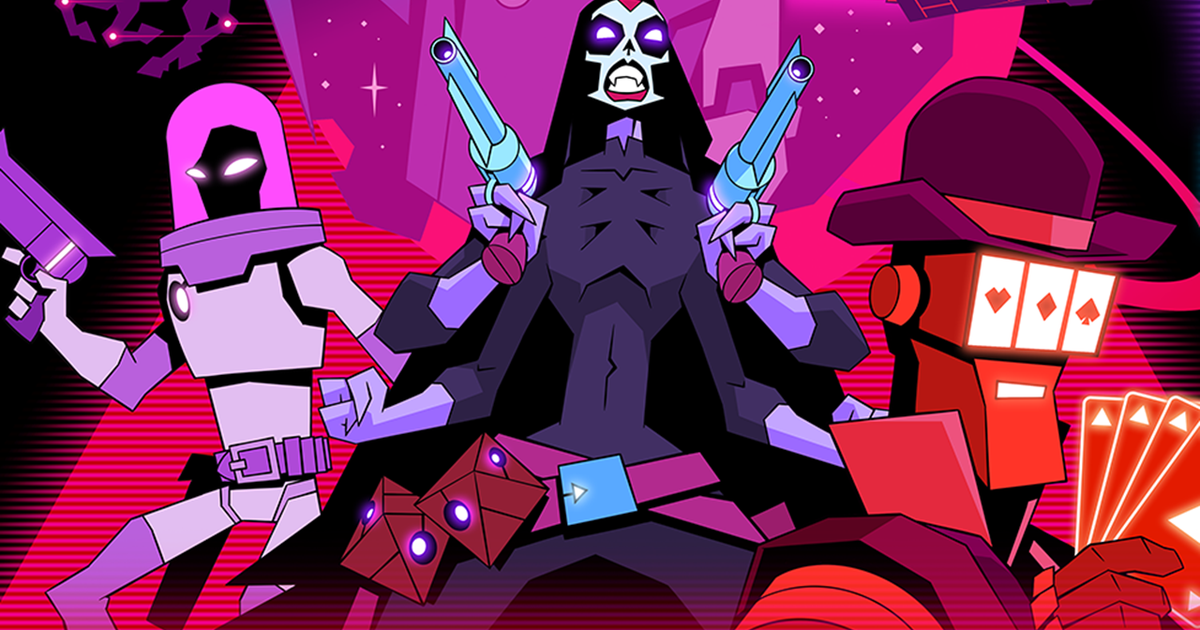Exploring "Wild Bastards": A Disappointing Venture into a Stylish Frontier
Blue Manchu’s Void Bastards, which was launched years ago under the banner of Humble Games, was a strategy-shooter roguelike that resonated so deeply with me that I purchased it on two separate occasions—once in a DRM-free version and once on Steam. Fast forward over five years, and we now have Wild Bastards, a title that attempts to chart a new course, albeit one that I find lacking.
Upon its announcement, my anticipation for Wild Bastards was high. The visuals were undeniably stylish and offered the kind of refreshing indie vibe perfect for the quieter days before the onslaught of autumn’s blockbuster releases. Regrettably, after spending a few hours with the game, my experience has been rather underwhelming. I questioned whether perhaps my mindset affected my enjoyment, but a glance at various reviews reveals that many players share my concerns.
At the outset, it’s clear that Wild Bastards pays homage to classic westerns. "Well, the cover basically shouts it!" you may say, and you wouldn’t be wrong. However, a game can have the right aesthetic and still fail in execution. Luckily, Blue Manchu has successfully captured the banter between characters—with all its endearing quirks—and brilliantly established the atmosphere that blends sci-fi elements with the essence of cowboy tales. The storyline features a band of 13 legendary outlaws, replete with clichés that could stop a train, allowing the game to wear its inspirations unabashedly.
As the story unfolds, we learn that "faced with their own mortality, the two remaining members have teamed up with the Drifter, a mysterious sentient spacecraft, to find and resurrect the deceased gang members while escaping to the legendary Homestead," as described on the game’s Steam page. It’s a compelling premise at first glance, but problems emerge immediately upon launching a new game. The introductory sequence feels overly hasty and chaotic, much like being thrust into the middle of a long-running narrative. While starting in medias res could be effective, here it presents a disorienting experience, especially given the reliance on cartoon cutouts and comic-style storytelling.
The introduction of game mechanics and systems lacks the finesse I hoped for. The first run—typically a tutorial in roguelike games—is somewhat mitigated by the game’s straightforward design. Players can manage strategy turns with simple clicking and engage in combat encounters much like they would in any other first-person shooter. However, the challenge lies in the unpreparedness that leads to an early demise for novice players.
In a manner reminiscent of Void Bastards, Wild Bastards incorporates a strategic layer atop the levels played, necessitating team management, upgrades, and route selection—similar to FTL. Throughout your journey, you will navigate various menus, making decisions about who to take on each adventure, how to distribute loot, and determining the safest or most rewarding path to follow. The game often requires a delicate balancing act to emerge victorious, but on the default difficulty level, it often feels imbalanced until players unlock significantly powerful characters.
Take poison damage, for example: it feels excessively overpowered, exacerbated by the sluggish movement and limited agility of most characters. The visual presentation does not lie; Wild Bastards feels as rigid as its "cardboard cutout" aesthetic implies. This could be forgivable if the gameplay offered more variety, but as a stylish shooter—or at least an attempt at one—the experience is disappointingly restrictive. Players are encouraged to utilize each character’s unique abilities, such as randomly causing enemies to explode, but this reliance leads to aimlessly running around the procedurally generated environments to collect power-ups, or engaging enemies cautiously to preserve health—an approach that sounds appealing in theory.
The truth is that, unlike Void Bastards, Wild Bastards revolves around a fast-paced shooting dynamic, yet its movement and overall gameplay flow feel reminiscent of its predecessor, which leaned more toward stealth and combat alternatives. Transitioning from exploration-based levels, inspired by System Shock, to combat arenas was not inherently negative; however, fundamental aspects like controls and player movement remain in a state that doesn’t support this shift effectively. While the strategic elements provide enough diversity to sustain engagement, I have found myself longing for a turn-based format or a different approach altogether.
Moreover, the pre-launch version of the game contained various annoyances that were unexpectedly overlooked in testing. Notably, the audio levels are shockingly low regardless of dynamic range settings, making sound effects and dialogue sound distant, like they originate from another room. This issue was apparent in an earlier demo version, and its persistence is quite perplexing. Players may also encounter enemies that inexplicably die and experience missed keystrokes during critical combat moments.
Although these concerns may eventually be addressed, the more significant flaws within Wild Bastards cannot be easily rectified. For many gamers, the visuals and character interactions may compensate for the less-than-stellar gunplay and movement mechanics or the overwhelming number of shallow systems. Despite its modest scope, Wild Bastards strives to juggle various innovative ideas without fully committing to any while being shackled by past constraints. Given the multitude of well-crafted and distinct roguelike games currently available, I find it unlikely that I will continue to roam these galactic frontiers for much longer.
